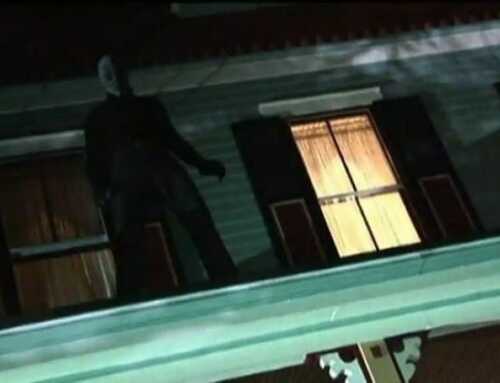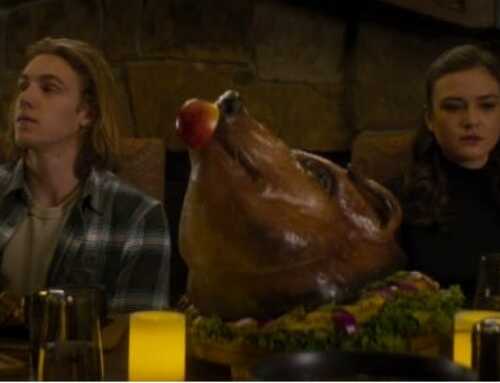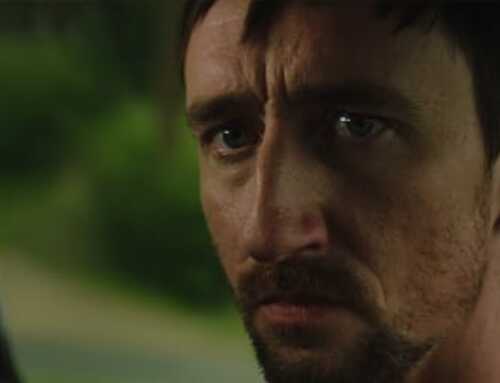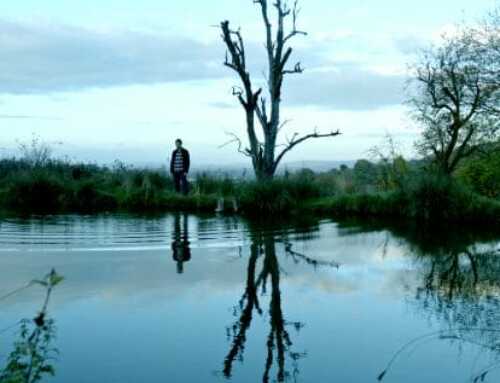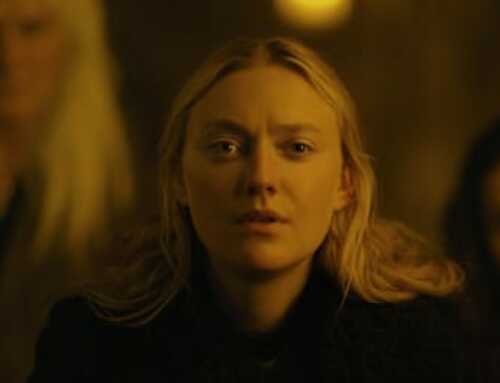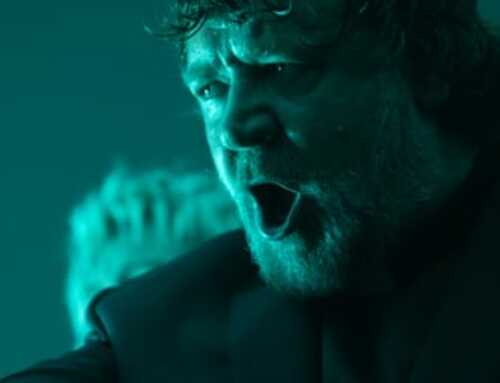The Cured, the latest film from writer-director David Freyne, is a thoughtful exploration of reform, and societal acceptance. The film explores a world in which the zombie or “Maze” virus has been cured, mostly, and civilization is trying to recover. The once ravenous zombies are human again, but they fully remember every horrible act they have committed, who they have eaten, and are more than aware that they will never fit in again.
We had the chance to speak with Freyne as he was promoting the release of the film on his intent for the movie, and what scares him the most.
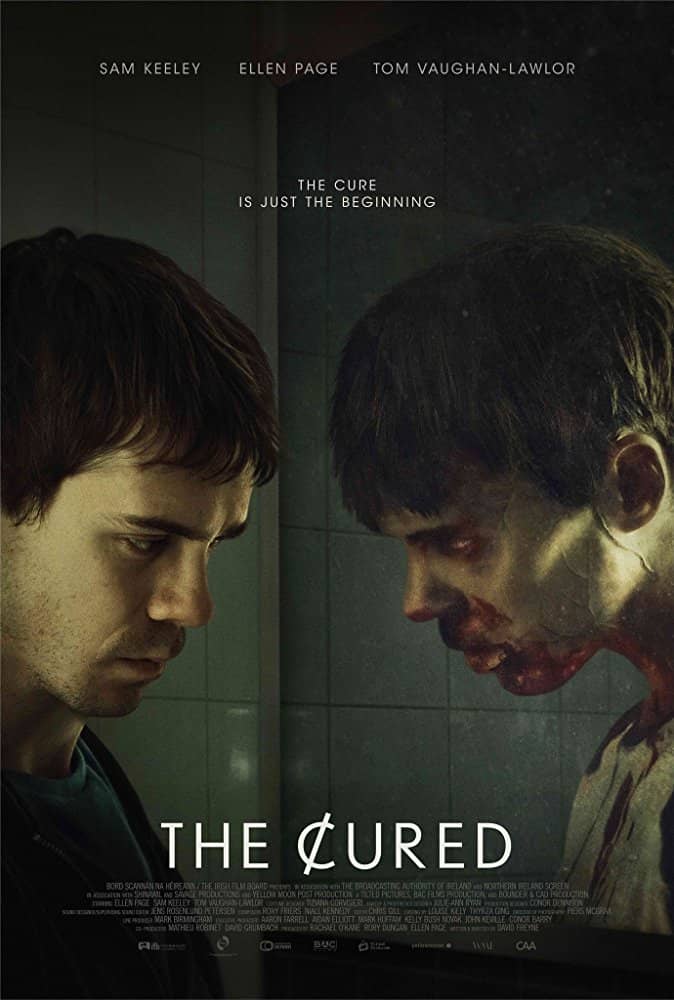
HorrorBuzz: The concept is a very original one that nobody has applied that to the zombie genre. I was wondering, “Why didn’t anyone think of this before?” What inspired this idea?
David Freyne: I mean I love the genre. When it’s done well I think it’s the best. It goes back to the things like I am Legend, the book. It was about this man trying to find a cure. In the Will Smith movie it ends with him curing a woman and then she dies. I thought, “Well hang on, that is the interesting part. What if you were cured and you remembered everything that you did and you are haunted by that?” That was the jumping off point where I created the character of Senan who’s wracked with guilt after being one of the infected. He is accepted back by his sister in law, Abbey (Ellen Page)and she has a small child and it’s just about them and the chaos they are living in.
HB: And exploring the themes of reform and recovery…
DF: Yeah
HB: Do you think that reform is a possible thing or is there anything you can’t come back from?
DF: Yeah, the film explores that and I think that it’s like if you remember things as if through trapped eyes can you really move on. I think reform is always possible. I did a lot of research on veterans with PTSD. They can be wracked with guilt, they can really kind of spiral. Ultimately, though, they weren’t in control, they were following orders. It’s right that you might be haunted by that but it’s also right that you shouldn’t be. I created two characters, Senan and Connor. You can explore that one person is haunted and the other person can rationalize it, “It wasn’t me, I wasn’t in control.” And, while that is right that is also sociopathic. So that’s the big thing we explore in this film is, “Should you or shouldn’t you feel guilty? How do you move on and make peace with that?” As an opportunist, I think that you can respond and you can reform.
I think the big thing in the film too is how society moves on and how society treats them. Another part of the film, Connor, the bad guy in the film is feeding on this as a politician and using it for his own ends and creating the chaos. It’s kind of how refugees were being treated in Europe at the time I was writing this, how they were being treated like a contagion and being used as a scapegoat for everything that is wrong in society. Yes the movie is about reform but it’s also about how we need to start looking at people as humans. Humans with problems who need help.
HB: How did Ellen Page get involved?
DF: Yeah I am pinching myself. (laughs) I had always wanted her for Abbey. Because the character is American, marooned on this island, because her son was born there, she can’t leave. So she’s kind of isolated. She wants to go somewhere safe but she couldn’t because her son would be a refugee.I had always been a huge fan of hers and I had never seen her play a mother, I thought it would be such a great fit. We reached out to her team and heard nothing, we did it again and again, then I wrote her a letter telling her that I thought she would be great for the part and we finally got through. She really responded to the script and was like, “I love this! I love this character. I will do what I can to help you make this.” That’s what happened. It was one of those bizarre happy stories. You also never know what you are gonna get with an actor of that caliber but she was a dream, she was great! She’s such a dedicated actor and a team player.
HB: She’s a relatively young actress but she is solid, she brings a reality, a weight to her roles. How was that to work with?
DF: She was great. She’s so emotive, such an intelligent person. She thinks so much about her character both mentally and emotionally, and truth to everything. I was kind of amazed at watching her react and what she brought to the character and how she interacted with the other actors. She gave the character such strength, depth, and complication. I mean, she’s had her success for a reason, she’s brilliant. It was joyous just watching her work and working with her. We got really lucky that we got such great actors for the leads and how they got on so well, they had such great chemistry. They all put so much research and so much work into it. Ellen spent so much time with the boy who plays her son, just hanging out and playing soccer with him and going to arcades. She created that bond in a very natural way which is perfect and it comes across. It definitely feels like a family.
HB: What’s the purpose of a good horror film?
DF: It’s always been a great way of telling a social story in a way that is visceral, in a way that isn’t heavy-handed or weighty. I think that is what it’s always done brilliantly, playing to our greatest fears and anxieties. That’s what I have always loved of horror, it feels instinctual. That’s what we wanted to do with this. It’s political, but I wanted it to be raw a and emotive and instinctual. All that political stuff comes through emotionally not mentally. All of that hate and fear isn’t a cerebral thing it’s an emotional thing. That for me is the purpose of horror. That ‘s what I love about them. I look at Romero’s films and 28 days later and It Follows. It’s about instinct.
HB: What is it that scares you?
DF: Oh god! What scares me? A zombie apocalypse because I’d be the first to die.
HB: It’s coming by the way.
DF: I KNOW! It is coming.I wrote this a few years ago and I was like “We’d better hurry and make this before the world catches up.” I think what scares me now in society is how easily we can take things for granted and how easily we can go back. How easily our rights can be taken away from us. We see that with LGBTQ rights, and African American rights in America or Female rights around the world, and I think if we ever take our eye off the ball, that’s when we could lose all that we have worked for. That’s what really scares me at the moment, progress turning backward.
| The Cured | ||
| RATING: | R | The Cured - Official Trailer I HD I IFC Films |
| Runtime: | 1hr. 35Mins. | |
| Directed By: | ||
| Written By: |
|
|


